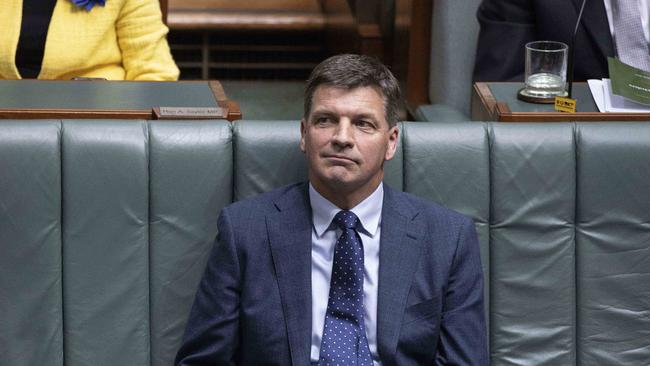Shadow treasurer: revisit economy through traditional lens

My side of politics has long believed that a strong economy demands lower tax rates, balanced budgets, spending restraint and containment of inflation and interest rates.
There is no greater killer of aspiration, enterprise and personal responsibility than permanently high-taxing and higher-spending governments crowding out individuals and businesses.
Nothing could have prepared us for the onslaught of global spending made necessary by strong and often lengthy Covid-19 restrictions.
But despite the emergency measures taken during the pandemic, the strength of the recovery has been striking, to say the least.
The Coalition handed Labor an economy and a budget in far better shape than most could have imagined.
Real and nominal GDP growth is remarkably robust, labour markets are experiencing unprecedented strength, Australian commodity exports – resources and agricultural – are breaking records supported by a relatively low exchange rate.
But that’s not what Jim Chalmers wants Australians to hear. The Treasurer is all too happy to talk down the economy and the budget.
But the situation – economic and political – is changing rapidly. As rapidly as any time I remember as we have emerged from the pandemic and from the election loss.
It’s time to revisit the new challenges we now face through the traditional lens of Liberal and National party values.
This is not a debate about whether the Coalition should move to the left or to the right.
The real contest here is between our core beliefs and the alternatives offered by our political competitors.
A belief that the private sector drives opportunity and prosperity, not government.
A belief that a dynamic, resilient small-business sector is at the heart of the economy, not bureaucracies.
A belief that hardworking families know what is best for them, not public servants or politicians.
A belief that the vision of each Australian should be the vision of our nation, not a vision conjured up at conferences in Canberra.
A belief that big business also has a crucial role to play, supporting their hardworking Australian family and small-business customers.
These are core Liberal values – values I believe will be even more important in the coming years.
It is very clear that the world has changed dramatically even in the past few months and our core values have much to offer in addressing the current challenges.
We’ve seen a rapid shift to an inflationary environment.
Interest rates are bucking decades of downward trends.
Productivity is more urgent than ever as we look to a longer-term pathway for balancing budgets, raising real wages and delivering quality public services.
Just as the pandemic itself required constant adaptation and response, so too does the current environment.
The truth is that in a period of low interest rates and strong economic growth, balanced budgets were less fashionable across the world, despite the fact we balanced the budget here in Australia in 2019.
During the pandemic some argued the direct costs of debt and deficit weren’t worth worrying about.
But we know economies hit speed bumps like the pandemic that require shock absorbers.
We know the risks of sharp increases in borrowing costs and reductions in credit ratings.
The test for the new government is whether it improves on the strong budget position left by the Coalition or makes excuses to spend more, tax more and make things worse.
We want to see sensible spending restraint that reduces pressure on cost of living and returns the budget to its pre-pandemic trajectory.
We will work closely with Labor if it stays true to these commonsense principles, in the national interest.
We will hold it to account if it doesn’t.
That is what our basic Liberal and National party values demand of us.
Australia deserves no less.
Angus Taylor is the opposition Treasury spokesman. This is based on a speech to the Centre for Independent Studies on Tuesday.



The past few years have been a tough time for fiscal conservatives across the globe.